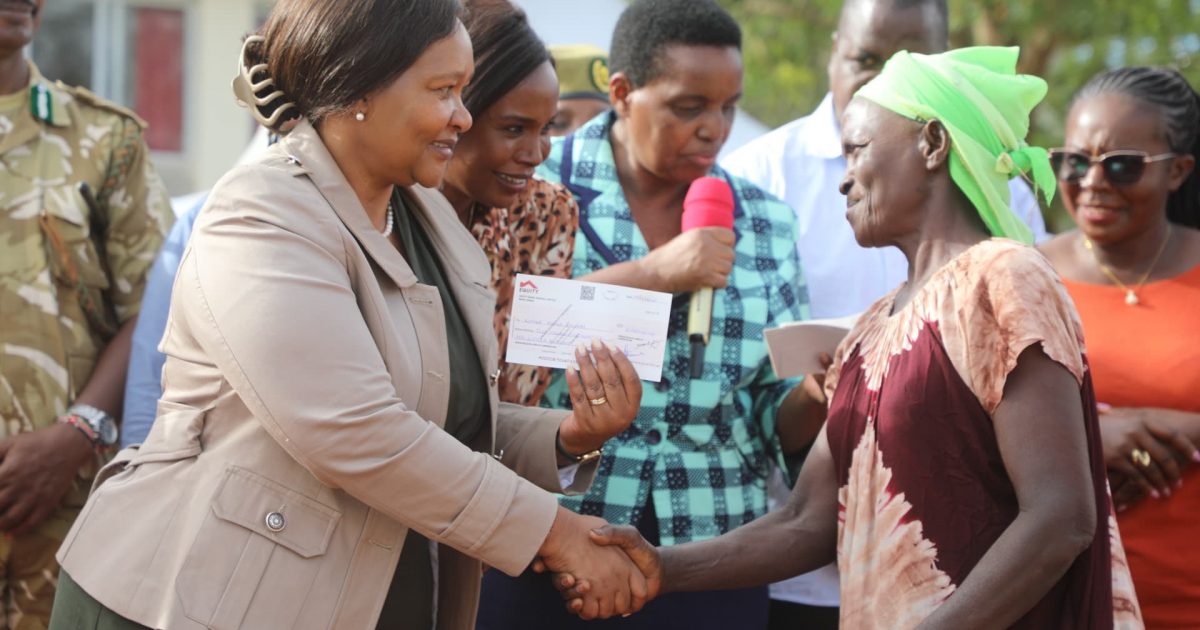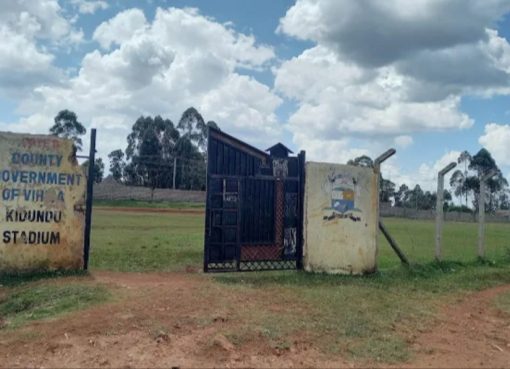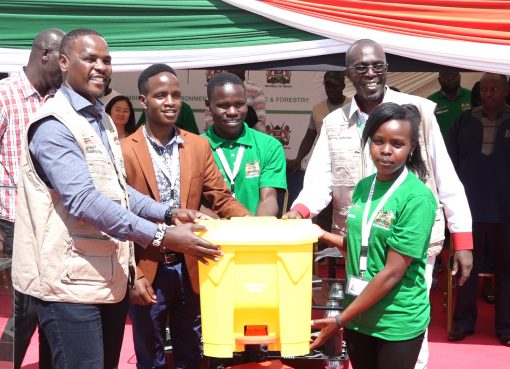The government has announced a significant boost in efforts to compensate victims of human-wildlife conflicts and implement long-term mitigation measures, including electric fencing and water projects, to curb increasing cases of wildlife encroachment in Taita Taveta County and other hotspot regions.
Speaking during a victims’ compensation event held on Thursday at Mwatate, Tourism and Wildlife Cabinet Secretary Rebecca Miano revealed that over Sh3.8 billion has been set aside in the last three years alone to support citizens affected by wildlife incursions across the country.
She stressed that this is the highest allocation ever made for such interventions since the inception of the compensation scheme.
“This shows the commitment of President William Ruto’s administration to solving the perennial issues of human-wildlife conflict. We have made strides in the compensation process, and even for those who are yet to receive their payments, the government is fast-tracking the process to ensure they are not left behind,” said CS Miano.
She noted that in the previous ten years, only Sh2 billion had been allocated for compensation, compared to over Sh3.8 billion channeled in the last three years alone. The 2023 allocation stood at Sh906 million; Sh960 million was released in 2024, while Sh950 million has been allocated for 2025.
In addition, Sh800 million has been set aside for insurance and Sh250 million for supporting committees that handle claims.
In Taita Taveta County alone, residents received Sh70 million in 2024 and have received Sh45 million in 2025. Twenty-two victims have already benefitted from the compensation this year.
Tourism Principal Secretary Sylvia Museiya said the current administration has prioritized timely compensation, unlike the previous regime, which she claimed paid little attention to the issue.
“This regime has shown commitment not only in releasing the funds but in ensuring the process is efficient,” she said.
Despite the progress, local leaders called for a faster, more accessible compensation process. Mwatate MP Peter Mbogho Shake and Chawia Ward MCA Joseph Mabishi both appealed to the Ministry to reduce the time it takes for affected families to be compensated.
“The forms should be available within reach of the citizens, not in far-flung offices,” said MCA Mabishi.
He also called out the mistreatment of locals found within parks, arguing that anyone caught violating park regulations should be taken to court rather than being assaulted by rangers.
MP Shake added, “Putting up electric fences will prevent marauding wild animals from getting into human settlements. But while we work on long-term solutions, let us be prompt in addressing the pain of affected families.”
Kenya Wildlife Service Director General Dr. Erastus Kanga reaffirmed the agency’s commitment to protecting both people and wildlife. He noted that Taita Taveta is the second most affected county in terms of human-wildlife conflicts, after Kajiado and ahead of Narok, Laikipia, Meru, Isiolo, and Makueni.
To mitigate this challenge, KWS is constructing several electric fences in Taita Taveta, including the Bura-Kamtonga-Mgeno fence and another stretching from Mgeno to Sagalla and Kasigau.
“We are also working on additional water pans within the parks to ensure animals have access to water inside protected areas and do not stray into human settlements,” said Dr. Kanga, applauding President Ruto for supporting wildlife conservation and the compensation agenda.
He also revealed that the tourism sector generated a record Sh460 billion in revenue last year, part of which is being reinvested to support communities.
Taita Taveta Deputy Governor Christine Kilalo urged the national government to create an emergency fund to assist residents injured by wildlife while awaiting compensation. She also called for a review of the Wildlife Compensation Act to include smaller but destructive animals such as snakes, monkeys, and baboons.
“Many of our people suffer when these animals destroy crops or cause injuries, yet they are not covered under the current compensation law,” she said.
Kilalo also pushed for a 50/50 revenue-sharing agreement between the county and national governments, especially from proceeds of wildlife tourism, and emphasized the need to prioritize residents near parks for job opportunities in conservation programs.
CS Miano echoed these calls for local collaboration, urging community and political leaders to work closely with the Ministry to ensure that the remaining compensation cases are resolved and that future conflicts are prevented.
“We need a united approach. Let us not only look at compensation but also at sustainable solutions that keep both our communities and wildlife safe,” she said.
By Arnold Linga Masila





